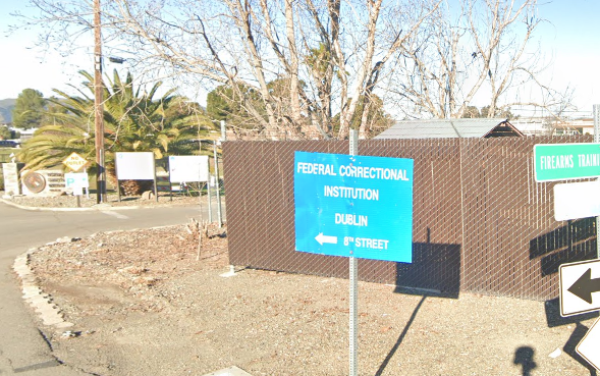
A federal grand jury has issued a superseding indictment against former correctional officer Darrell Wayne Smith, charging him with 15 counts of sexual abuse, including a civil rights violation, according to the San Francisco Examiner. The charges involve five female inmates at Federal Correctional Institution, Dublin (FCI Dublin) located at 5701 8th St, Dublin, CA 94568.
"As alleged, Officer Daryl Smith engaged in appalling criminal acts when he sexually abused those in his care and custody," said Deputy Attorney General Lisa Monaco. The initial federal indictment against Smith, 55, now residing in Florida, was filed on April 13, 2023, and charged him with engaging in illegal sexual acts with three female inmates while he was employed at FCI Dublin as a correctional officer.
The superseding indictment, issued yesterday, identifies two additional victims and charges 15 counts against Smith. It includes all 12 counts of sexual abuse from the initial indictment and adds two new counts of sexual abuse involving the additional victims. Smith's alleged sexual conduct is now said to have begun as early as August 2016.
"Today's superseding indictment includes three new allegations of sexual assault by Smith, a Correctional Officer at FCI Dublin. The 15 charges against Smith allege he sexually abused multiple inmates over several years, including brazen and violent acts," said Inspector General Michael E. Horowitz.
The superseding indictment also includes a new count alleging a federal civil rights violation, according to the press release. "The defendant's alleged actions are some of the most disturbing charges we've seen for a former federal corrections officer," said Executive Assistant Director Michael D. Nordwall of the FBI's Criminal, Cyber, Response, and Services Branch.
"These allegations of sexual abuse are deeply troubling," said FBI San Francisco Special Agent in Charge Robert K. Tripp. "We are committed to enforcing civil rights statutes and holding accountable those who abuse their positions."
This is not the first time FCI Dublin has faced allegations of sexual misconduct by its staff. The facility has a documented history of rampant sexual abuse, with multiple lawsuits and investigations accusing correctional officers of coercing inmates into sexual acts in exchange for basic necessities or privileges. A 2021 Department of Justice report found systemic failures in the prison's policies and practices that enabled a culture of abuse to persist.
Read more about earlier charges against other employees at the correction institution:
Nakie Nunley received a six-year sentence after being convicted of multiple sexual abuse charges.
Enrique Chavez was a cook supervisor arrested in 2022 for touching a woman inappropriately.
James Theodore Highhouse, a corrections worker and chaplain, was charged with sexually abusing an inmate multiple times from 2018 to 2019.
Ray J Gardia, a warden at the prison was accused of forcing women to remove their clothing so he could photograph them.

In the wake of the disturbing allegations against a former correctional officer at FCI Dublin, the legal options and accountability measures available to inmate survivors of sexual abuse are of critical importance. To better understand these complex issues, we sat down with Jason Amala, an experienced CA lawyer who has represented numerous victims of sexual assault in institutional settings.
Editor Darla Medina: Thank you for joining us. As an experienced lawyer representing survivors of sexual abuse, what options do inmates have for seeking justice in a case like this one involving the former correctional officer at FCI Dublin?
Attorney Jason Amala: Inmates who have been sexually abused by staff in a federal prison have the right to file civil lawsuits against both the individual perpetrator as well as the government agency responsible for their care and custody. This could include claims for violations of their constitutional rights, as well as state law claims like assault, battery, and intentional infliction of emotional distress.
DM: And what about holding the prison system itself accountable for failing to protect these inmates?
JA: Absolutely. Prisons and correctional agencies have a duty to keep inmates safe from harm, including sexual abuse by staff. If an investigation shows the agency was aware of prior misconduct or complaints against this officer but failed to properly investigate or take corrective action, that could form the basis of a negligence claim against the government. Victims may also have claims if the prison didn't have adequate policies, training, or supervision in place to prevent such abuses.
DM: That's an important point. So what advice would you give to inmates who may have suffered similar abuse, in terms of documenting evidence and accessing support services?
JA: I would encourage any inmate who has experienced sexual abuse to report it immediately to prison officials, request a forensic medical exam, and seek counseling and other victim services available through the prison. It's also critical that they work with an attorney experienced in this area of law to preserve evidence and file any applicable civil or criminal claims. These types of cases can be complex, but survivors deserve to have their voices heard and to obtain the justice and compensation they are owed.
DM: Thank you, Jason, for providing this valuable perspective on the legal options and accountability measures available in a case like this one. Your expertise is greatly appreciated.
JA: You're very welcome. I'm glad I could shed some light on this important issue and provide guidance for inmates seeking to hold their abusers and the prison system responsible.
For inmates or their families who have experienced sexual abuse by staff at a correctional facility, it's important to know that you have legal rights and options for accountability. If you or a loved one have suffered such abuse, we encourage you to reach out for a free, confidential consultation. Our legal team is dedicated to helping survivors seek the justice and compensation they deserve, while also promoting systemic changes to protect the safety and dignity of all incarcerated individuals.
 info@legalherald.com
info@legalherald.com